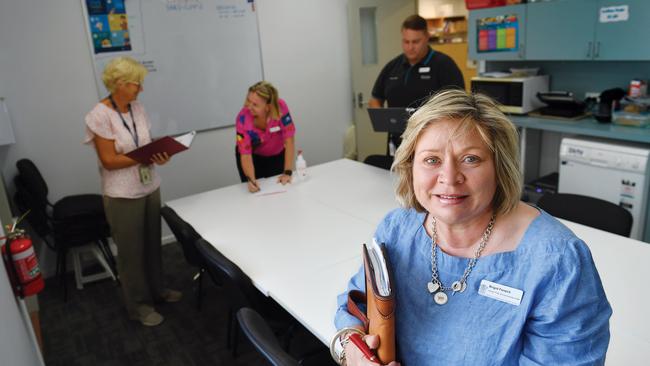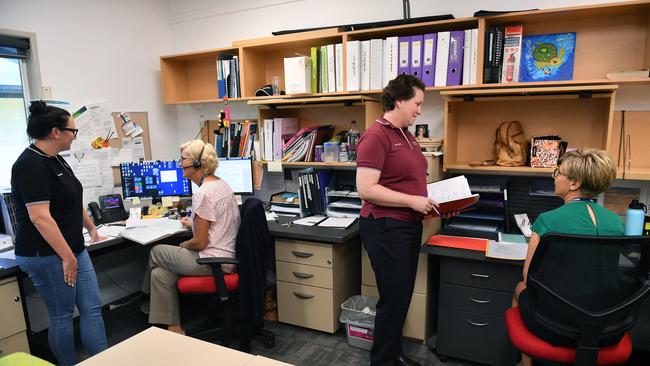How Mackay’s disease detectives are winning virus war
HEROES OF THE PANDEMIC: The most mundane things in our lives can provide the crucial link in the coronavirus chain. PART 1 of our exclusive series.

Mackay
Don't miss out on the headlines from Mackay. Followed categories will be added to My News.
CAN you remember what you had for breakfast today? Who were you with?
- How Mackay's disease detectives are winning virus war
- Most common Covid-19 questions as asked by you
- What happens after you're Covid-positive
- Mackay region almost Covid-19 free
What about yesterday? What about two weeks ago?
Which days in the past fortnight did you go to the gym? What equipment did you use? Who did you speak to?
The most mundane things in our lives can provide the crucial link in the coronavirus chain.
It's how 15 Mackay sleuths have been tracking every move of the people who have tested positive for the invisible enemy.
Contact tracers are instrumental in tracking the spread of infectious diseases with the goal of safeguarding communities and saving lives.
Their job is to understand how Covid-19 is spread, and the infectious disease specialists in the Mackay Hospital and Health Service Public Health Unit work with a person to trace their movements back to the point of infection.
"We don't just use (contact tracing) for pandemic situations, we use it for all notifiable diseases and controlled notifiable diseases," PHU director Brigid Fenech said.
Like measles, or some sexually transmitted diseases.
The team's current focus, like their global counterparts, is tracing the source of infection of coronavirus - which for Mackay has been linked back to international travellers in each of its 15 cases.
"Contact tracing is a tool that public health has used for eons," Ms Fenech said.
"It's a very specific tool, with very specific skills and people that have a history and expertise in this area are well versed in it."
There's 15 in Mackay, working out of an unassuming building behind the base hospital and whose tools aren't surgical scrubs, lab coats or microscopes but rather honed instincts and skills, and authority granted by the Chief Health Officer, to squirrel the truth from a scared community.

Contact with the tracers
CONTACT tracers are notified when a person tests positive, and they work with the patient to chart their movements for the 24 and 48 hours from the time of their symptoms. That doesn't necessarily mean the moment they were tested.
"They are a team of Sherlock Holmes … they are doing a fantastic job on tracking down these cases," Prime Minister Scott Morrison espoused to national media in April when the idea of the COVIDSafe app was first announced.
More than two million people across Australia downloaded the app in the first 24 hours of its release.
The app digitises and expedites the work already being done by contact tracers but will not make their roles redundant as they respond to outbreaks and new cases.
"The more Australians who take this up the more secure we are about our public health response," Chief Medical Officer Brendan Murphy said this week, adding it would help progress plans to ease social distancing restrictions.
Where the contentious app will track a person through their phone's Bluetooth, contact tracers across the country become disease detectives; questioning a patient at length, then running down every line of inquiry and contact.
"We have had people who have left details out and those details have come to light as we have done the broader contact tracing, so we have gone back to them," Ms Fenech said.
"If the Public Health Unit in Mackay ring you tomorrow, we want honesty and as much transparency as possible because once we know the full facts, that's how we manage the situation.
"We will still get to the bottom of it, without a doubt."



